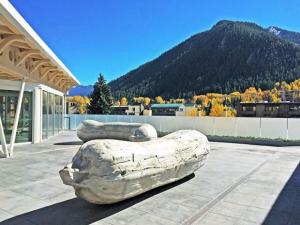Gov. John Hickenlooper's oil-and-gas task force today adopted a plan to create a collaborative relationship between the state and local governments on regulating drilling.
But even before finishing, industry and local government representatives were predicting that the issue would still end up in the legislature and the courts.
"There are still a whole lot of unresolved issues," said Stan Dempsey, president of the Colorado Petroleum Association and a task force member.
The task force outlined a plan to increase cooperation between state regulators and local governments and to enable local inspectors for rigs and wells.
The commission did not address a range of issues that Hickenlooper outlined in his executive order, including well setbacks from homes, air quality, noise abatement and traffic management.
The task force's aim was, in six weeks, to try to resolve some of the emerging conflicts among the industry, the state and cities and counties.
"This is an evolving process," said Mike King, the director of the state Department of Natural Resources and chairman of the task force.
King said when the state adopted new rules in 2008 the focus was on the West Slope and issues such as wildlife.
But as drilling has picked up on the Front Range, counties and municipalities started drafting their own oil and gas rules and implementing drilling moratoria.
The state Oil and Gas Conservation Commission and the industry have both maintained that regulation of drilling is the state's role.
The group focused on strengthening the role of "local government designee" to the oil and gas commission and creating a way for local governments to take over inspections of rigs and wells.
"The task force does not make recommendations for new laws," the group said in a letter to the governor.
The task force instead recommended "a collaborative approach through which it can resolve issues without litigation or legislative debate."
Among the steps proposed are:
• Encouraging drillers to to meet with local officials early in the application process.
• Strengthening the communication between the oil and gas commission and local governments on permitting and violation issues.
• Creating a process to enable local governments to have inspectors for rigs and wells.
"This is an alternative to legislation that nobody wants to see," said Barbara Green, the task force member representing Colorado Conservation Voters.
Still, the fact that most of the steps depend on voluntary and cooperative actions troubled Brian Bagley, a Longmont councilman and task force member.
"While this sounds good in this room, out there in the real world it has no teeth," Bagley said.
Bagley said that local governments were likely to guard their right to regulate drilling.
"As much as we try to avoid litigation there is a role for the courts and there is going to be litigation," Dempsey said.
Mark Jaffe: 303-954-1912 or mjaffe@denverpost.com


 Font Resize
Font Resize



Article Comments